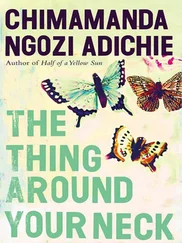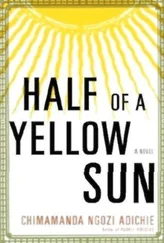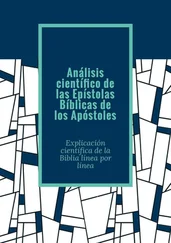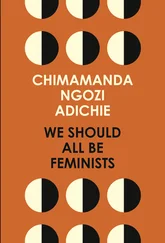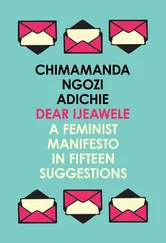“Sorry, Esther,” Ifemelu said.
“Thank you, ma.”
“Esther, sorry o,” Zemaye said. “I saw her dull face, but I thought she was just fasting. You know she’s always fasting. She will fast and fast until God gives her a husband.”
Esther giggled.
“I remember I had this really bad case of typhoid when I was in secondary school,” Ifemelu said. “It was terrible, and it turned out I was taking an antibiotic that wasn’t strong enough. What are you taking, Esther?”
“Medicine, ma.”
“What antibiotic did they give you?”
“I don’t know.”
“You don’t know the name?”
“Let me bring them, ma.”
Esther came back with transparent packets of pills, on which instructions, but no names, were written in a crabbed handwriting in blue ink. Two to be taken morning and night. One to be taken three times daily .
“We should write about this, Doris. We should have a health column with useful practical information. Somebody should let the health minister know that ordinary Nigerians go to see a doctor and the doctor gives them unnamed medicines. This can kill you. How will anybody know what you have already taken, or what you shouldn’t take if you’re already taking something else?”
“Ahn-ahn, but that one is a small problem: they do it so that you don’t buy the medicine from someone else,” Zemaye said. “But what about fake drugs? Go to the market and see what they are selling.”
“Okay, let’s all calm down? No need to get all activist? We’re not doing investigative journalism here?” Doris said.
Ifemelu began then to visualize her new blog, a blue-and-white design, and, on the masthead, an aerial shot of a Lagos scene. Nothing familiar, not a traffic clog of yellow rusted buses or a water-logged slum of zinc shacks. Perhaps the abandoned house next to her flat would do. She would take the photo herself, in the haunted light of early evening, and hope to catch the male peacock in flight. The blog posts would be in a stark, readable font. An article about health care, using Esther’s story, with pictures of the packets of nameless medicine. A piece about the Nigerpolitan Club. A fashion article about clothes that women could actually afford. Posts about people helping others, but nothing like the Zoe stories that always featured a wealthy person, hugging children at a motherless babies’ home, with bags of rice and tins of powdered milk propped in the background.
“But, Esther, you have to stop all that fasting o,” Zemaye said. “You know, some months Esther will give her whole salary to her church, they call it ‘sowing a seed,’ then she will come and ask me to give her three hundred naira for transport.”
“But, ma, it is just small help. You are equal to the task,” Esther said, smiling.
“Last week she was fasting with a handkerchief,” Zemaye continued. “She kept it on her desk all day. She said somebody in her church got promoted after fasting with the handkerchief.”
“Is that what that handkerchief on her table was about?” Ifemelu asked.
“But I believe miracles totally work? I know my aunt was cured of cancer in her church?” Doris said.
“With a magic handkerchief, abi ?” Zemaye scoffed.
“You don’t believe, ma? But it is true.” Esther was enjoying the camaraderie, reluctant to return to her desk.
“So you want a promotion, Esther? Which means you want my job?” Zemaye asked.
“No, ma! All of us will be promoted in Jesus’ name!” Esther said.
They were all laughing.
“Has Esther told you what spirit you have, Ifemelu?” Zemaye asked, walking to the door. “When I first started working here, she kept inviting me to her church and then one day she told me there would be a special prayer service for people with the spirit of seductiveness. People like me.”
“That’s not like entirely far-fetched?” Doris said and smirked.
“What is my spirit, Esther?” Ifemelu asked.
Esther shook her head, smiling, and left the office.
Ifemelu turned to her computer. The title for the blog had just come to her. The Small Redemptions of Lagos .
“I wonder who Zemaye is dating?” Doris said.
“She told me she doesn’t have a boyfriend.”
“Have you seen her car? Her salary can’t pay for the light in that car? It’s not like her family is rich or anything. I’ve been working with her almost a year now and I don’t know what she like really does?”
“Maybe she goes home and changes her clothes and becomes an armed robber at night,” Ifemelu said.
“Whatever,” Doris said.
“We should do a piece about churches,” Ifemelu said. “Like Esther’s church.”
“That’s not a good fit for Zoe ?”
“It makes no sense that Aunty Onenu likes to run three profiles of these boring women who have achieved nothing and have nothing to say. Or the younger women with zero talent who have decided that they are fashion designers.”
“You know they pay Aunty Onenu, right?” Doris asked.
“They pay her?” Ifemelu stared. “No, I didn’t know. And you know I didn’t know.”
“Well, they do. Most of them. You have to realize a lot of things happen in this country like that?”
Ifemelu got up to gather her things. “I never know where you stand or if you stand on anything at all.”
“And you are such a judgmental bitch?” Doris screamed, her eyes bulging. Ifemelu, alarmed by the suddenness of the change, thought that perhaps Doris was, underneath her retro affectations, one of those women who could transform when provoked, and tear off their clothes and fight in the street.
“You sit there and judge everyone,” Doris was saying. “Who do you think you are? Why do you think this magazine should be about you? It isn’t yours. Aunty Onenu has told you what she wants her magazine to be and it’s either you do it or you shouldn’t be working here?”
“You need to get yourself a moisturizer and stop scaring people with that nasty red lipstick,” Ifemelu said. “And you need to get a life, and stop thinking that sucking up to Aunty Onenu and helping her publish a god-awful magazine will open doors for you, because it won’t.”
She left the office feeling common, shamed, by what had just happened. Perhaps this was a sign, to quit now and start her blog.
On her way out, Esther said, her voice earnest and low, “Ma? I think you have the spirit of husband-repelling. You are too hard, ma, you will not find a husband. But my pastor can destroy that spirit.”
Dike was seeing a therapist three times a week. Ifemelu called him every other day, and sometimes he spoke about his session, and other times he did not, but always he wanted to hear about her new life. She told him about her flat, and how she had a driver who drove her to work, and how she was seeing her old friends, and how, on Sundays, she loved to drive herself because the roads were empty; Lagos became a gentler version of itself, and the people dressed in their bright church clothes looked, from far away, like flowers in the wind.
“You would like Lagos, I think,” she said, and he, eagerly, surprisingly, said, “Can I come visit you, Coz?”
Aunty Uju was reluctant at first. “Lagos? Is it safe? You know what he has been through. I don’t think he can handle it.”
“But he asked to come, Aunty.”
“He asked to come? Since when has he known what is good for him? Is he not the same person who wanted to make me childless?”
But Aunty Uju bought Dike’s ticket and now here they were, she and Dike in her car, crawling through the crush of traffic in Oshodi, Dike looking wide-eyed out of the window. “Oh my God, Coz, I’ve never seen so many black people in the same place!” he said.
Читать дальше

